World Cup 2014: Brazil's ecstasy is Croatia's agony
- Published
Archive: Neymar strike sparks Brazil at World Cup 2014
Brazil's World Cup may have been seven years in the making, but on this evidence it will be worth the wait.
As the masses streamed away from Arena de Sao Paulo they were left to reflect on a football match that had all the drama of a World Cup wrapped up in 90 explosive minutes.
There was an own goal, a highly charged atmosphere and a penalty decision by Japanese referee Yuichi Nishimura that left a bad taste in every Croatian mouth.
Brazilians danced in the streets around the stadium, but those in red and white could not share in their joy. Anyone who witnessed the players trudge towards their Croatia team bus could feel the frustration radiating. They will not forget this easily, they will not forgive the referee, they were in no mood to celebrate.
However, all over Sao Paulo, tens of thousands of Brazilians did just that.
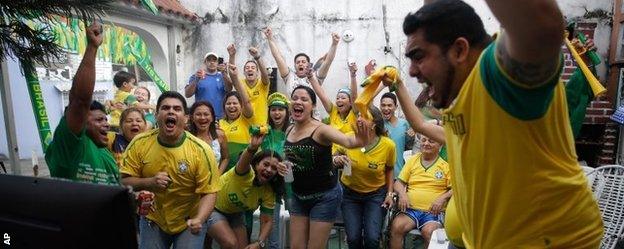
Fans across Brazil - and the world - celebrated as the host nation picked up victory in Sao Paulo.
Fireworks crackled in the night sky, car horns tooted in one street after another in this sprawling city. They sang and they shouted, they savoured the victory they so desperately needed.
They feted Neymar, the hero who stepped up when Brazil needed him most. The feeling, though, was mutual. This was country and football team in harmony.
"There were those that said the people didn't support the national team," Luis Felipe Scolari, the Brazil coach, said. "We disproved that in Sao Paulo, we go forward together."
Two moments stood out above all else. The first was the national anthem, when Brazil, as they did last summer, sang on long after Fifa had shut off the music. It was rousing, it was spine-tingling, it was an outpouring of pride that brought a number of players close to tears and left Scolari himself wiping away moisture from his cheeks.
The second was the deep, rumbling roar that thundered around the stadium when Neymar's left-foot shot flicked off the post and into the net to bring Brazil level. The young forward raised a finger to the sky and ran to his coach for a mass touchline love-in between staff and squad.
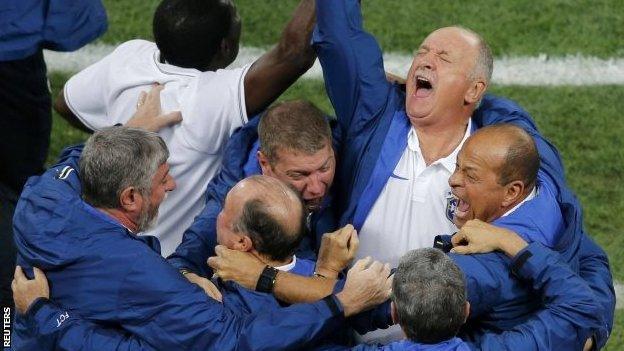
The emotion was clear on the Brazil bench when Neymar hit his first-half equaliser against Croatia
"The first match is always difficult, we were anxious, we were nervous," Scolari said. "Neymar is special. He needs to know that we know that."
The headlines were Neymar's, but they will gloss over the finer points. One was the poor goalkeeping between the Croatian posts. Neymar's mis-timed first effort may have been saved on another day, as might his second-half penalty. Oscar's third also found the net a little too easily.
And Croatia refused to let go after the match that on another day the young Brazilian might have been sent off for catching Luka Modric with a swinging arm.
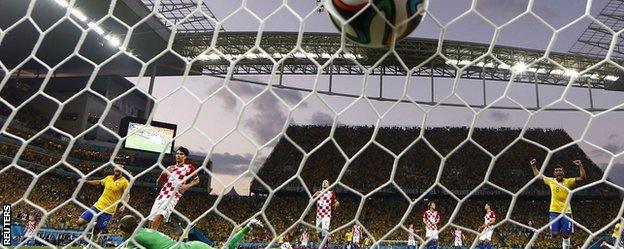
Neymar moved on to 33 goals for his country, on his 50th cap, with a brace against Croatia.
Even with Neymar, Brazil looked vulnerable. Croatia's energetic midfield had the better of that particular battle for long periods, while in the full-back positions, Marcelo and Dani Alves were often caught out of position. Hulk and Fred failed to convince in attack.
Brazil may not be this bad again, however. They are a side that craves momentum, a team that will grow in belief now that they are one step closer to achieving their dream next month.
Bigger challenges await, as do better teams. Brazil will, however, become harder to beat, harder to shackle as the tournament gathers pace and public support grows.
"It's important to start these tournaments on the right foot, with a victory," Neymar said. "I'm happy that I got to score, but the entire team deserves credit."
Croatia made Brazil look human for long periods. They pinned them back, restricted the fluency that became such a feature of the Confederations Cup.
A year ago, Brazil had looked unconvincing in beating Japan 1-0, thanks to that man, Neymar. As then, Brazil face Mexico in their second match of the tournament. In the heat and intensity of Fortaleza, it promises to be another special occasion.
It should be remembered just how hard it is to beat Brazil on home soil. Their last defeat of any kind came by Paraguay in 2002. You have to go back to the 1975 Copa America to find a competitive defeat and that came against Peru. Few can match that.
Arguably the biggest positive of the day was the performance of Oscar. The week leading up to the day had been dominated by the Brazilian media asking questions about his form, his fitness and whether Willian, his Chelsea team-mate, should start.
"Oscar is pure, he is good, he is the child any father would like to have," Scolari said. "He doesn't say anything. He didn't want to shut anyone up. Just to play."
Both sides displayed a freedom, both sought adventure before caution. If that approach continues it could be an absorbing and spectacular tournament.
For the best of BBC Sport's in-depth content and analysis, go to our features and video page.
- Published13 June 2014
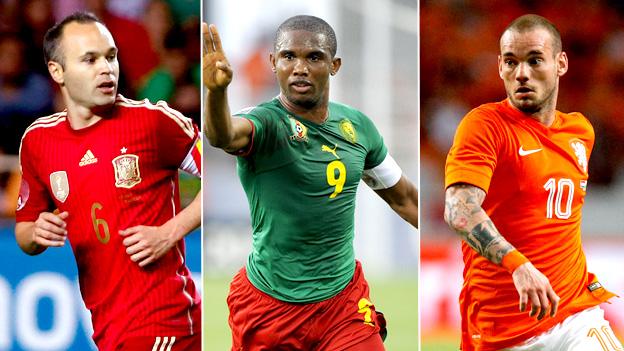
- Published13 June 2014
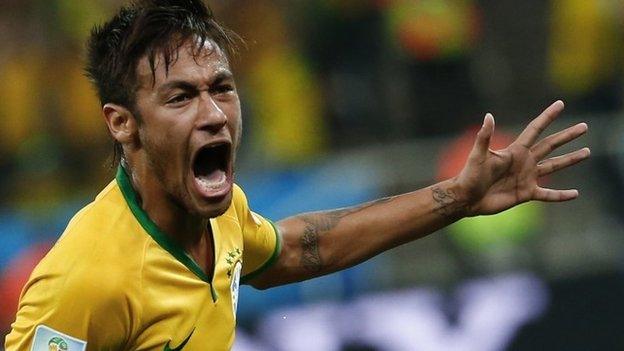
- Published13 June 2014
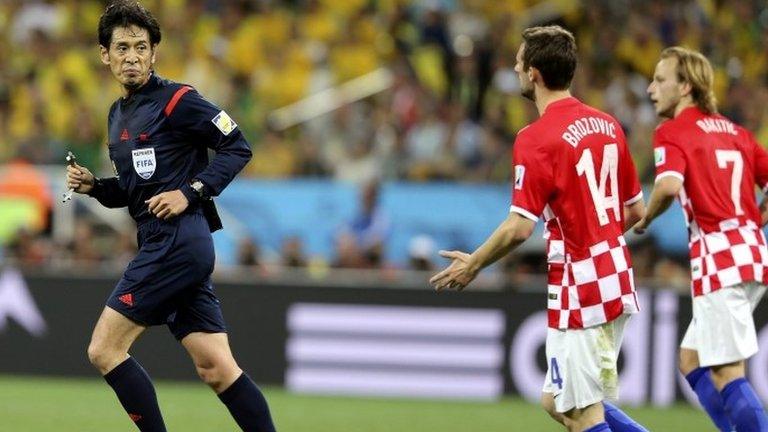
- Published22 May 2014
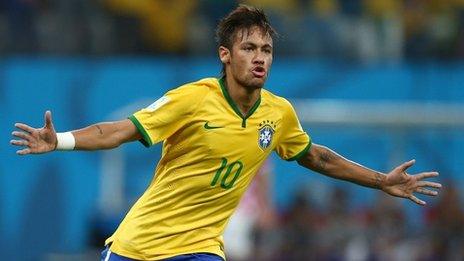
- Attribution
- Published12 June 2014
